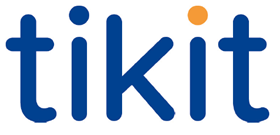Tikit is a leading provider of innovative and specialist technology to the Legal and Professional services sector with over 1500 law firm clients globally and is part of BT Group
As a former legal aid lawyer, I’m well aware of the pressures. And a big one is that legal aid work simply doesn’t pay. The time taken to process and attend is so poorly compensated that firms have to cross-subsidise the work, do less of it, or abandon legal aid altogether to stay in business. This is an excruciating choice for people committed to the principle of justice for all. However, legal aid can be made more viable. In this short piece I’m going to outline the impact that the right technology can make.

What automation can do
Technology really can’t make travelling time and attendance any briefer. What it can do is slash the time taken to administer legal aid. Imagine, for instance, when first meeting a client, that you type the client’s details into a form on a laptop instead of writing them out on paper. (Where appropriate, you can even ask the client to type in their own details.)
It doesn’t matter, incidentally, if the laptop is on- or off-line at the time. The information will still be held. And once in the system, the data never needs to be re-entered. Plus, it’s accurate, complete and searchable. What’s more, as soon as the laptop is back online the new client’s information can be uploaded quickly and easily into the firm’s practice management system (PMS).
It’s now that things start to get really clever. Because the right PMS can create a new client, open a matter file, post the time recorded on to the ledger and depending on the boxes you’ve ticked, generate fully populated client care and next step letters. Meanwhile the system has recorded the police station attendance, so generating the relevant CRM11/7 is quick and easy.
To the uninitiated this might all sound like fiction. But I assure you it’s not. At Tikit we’ve developed this technology with our user groups so that it works with our practice management system, Partner for Windows (P4W), using a module called FormShare.
The impact of the right PMS
Moreover, it really does save time. This is because a lawyer, like me, is in the room while it’s being developed so that systems are “lawyer-friendly”. We make sure that electronic sequences reflect what lawyers encounter in the real world so that systems are intuitive to use, making adoption fairly painless. It would be a big disaster if firms took on technology that people struggled with and ultimately tried to avoid. We’re hugely conscious of that, so it doesn’t happen.
But what’s the actual impact of this type of PMS technology? Well, as a lawyer I can spend 10 minutes drafting the next step letter or I can press a button which generates it near-instantaneously. That time saving is helpful, but the point is that these things are about cumulative impact. If you save 10 minutes a day it adds up. Ten minutes x 200 working days a year x 20 lawyers is more than 660 hours. Monetised at £40 per hour it is well over £26k per annum.
However, it’s very likely you’ll save more than 10 minutes per day. A firm that Tikit works with developed the FormShare technology for use at police stations. They’ve found data accuracy improved and an average saving of 35 minutes per client. What’s more GDPR compliance is built in! Since 2,000 police station clients were on-boarded last year, it saved them 166 days, roughly seven months of work. It’s had a transformative impact on this firm’s ability to continue doing legal aid work.
So the question really isn’t: “Can you afford to introduce a new PMS while you’re delivering legal aid?” The question has now become: “Can you afford not to?”
To find out more join Tikit for a webinar on the 11 September. To register, visit the Professional Development Centre on the Law Society website.
www.tikit.com
hello@tikit.com
Twitter: @TikitGroup
LinkedIn: Tikit
Tel: +44 20 7400 3737
































1 Reader's comment